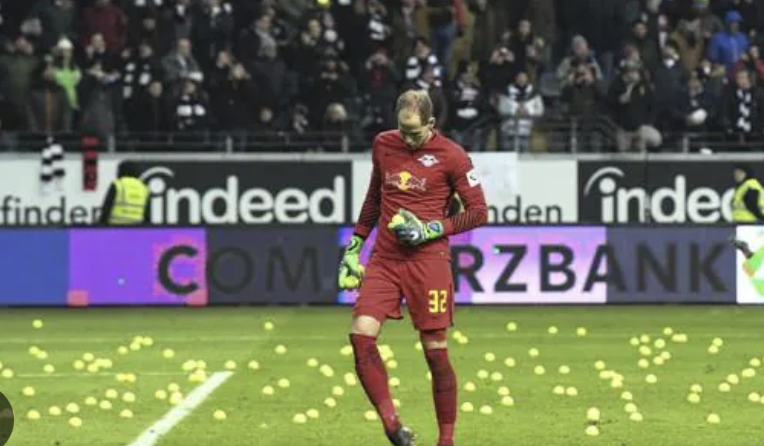February 22 – In a classic case of fan power, multiple protests have torpedoed plans by the German Football League (DFL) to sell a stake in its media rights income to an outside investor.
The stunning u-turn came after fans had for weeks littered pitches with everything from tennis balls to chocolate coins in opposition to the proposal.
“Given current developments, a successful continuation of the process no longer seems possible,” Hans-Joachim Watzke said in a statement on behalf of the DFL’s board.
Ever since the clubs voted in December by to proceed with talks on the investment plan, protests across the top two tiers of German football interrupted games, leading to prolonged periods of added time and threats to abandon the matches
Some protests have even involved fans using remote-controlled cars and airplanes to stop games.
Watzke, who is also chief executive of Borussia Dortmund and was a key backer of the investment plan involving CVC Capital Partners, said “major confrontations” were causing unrest at the league’s member clubs. This, he added, was affecting games and potentially even threatened “the integrity of the competition.”
The DFL deal proposed a “strategic partnership” with a private equity firm in a bid to boost the value of the Bundesliga’s international broadcast rights. That proposal was voted through by 24 of the 36 clubs that form the DFL in a secret ballot on December 11 but was mired in controversy because Martin Kind of Hanover 96 reportedly voted in favour of the deal despite an explicit directive from his parent club to vote ‘no’.
Abandoning the investment plan means Germany is going against a trend of increased private equity involvement in European football. The league had wanted to agree on a deal by the end of next month ahead of a planned auction of new TV rights for the 2025-26 season and beyond.
The league argued the deal would help to modernise how the competition is marketed around the world and would free up money for clubs to invest in their infrastructure.
Under the deal, the DFL would have sacrificed up to 8% of the Bundesliga’s future broadcast revenues over a 20-year period in exchange for an immediate cash injection of about €1 billion to help promote German football internationally.
But fans had been especially concerned an investor might seek to influence kick-off times or push for some games to be played outside Germany.
Thomas Kessen, spokesperson for the Unsere Kurve fan group, told Germany’s dpa news agency: “From the perspective of active fans and all members of the clubs in Germany, this is obviously a big success.”
“It shows that German football is member-based, is democratic, and that you have to bring these members with you in landmark decisions like this. Today is a good day for Germany’s soccer fans.”
Contact the writer of this story at moc.l1744412267labto1744412267ofdlr1744412267owedi1744412267sni@w1744412267ahsra1744412267w.wer1744412267dna1744412267

